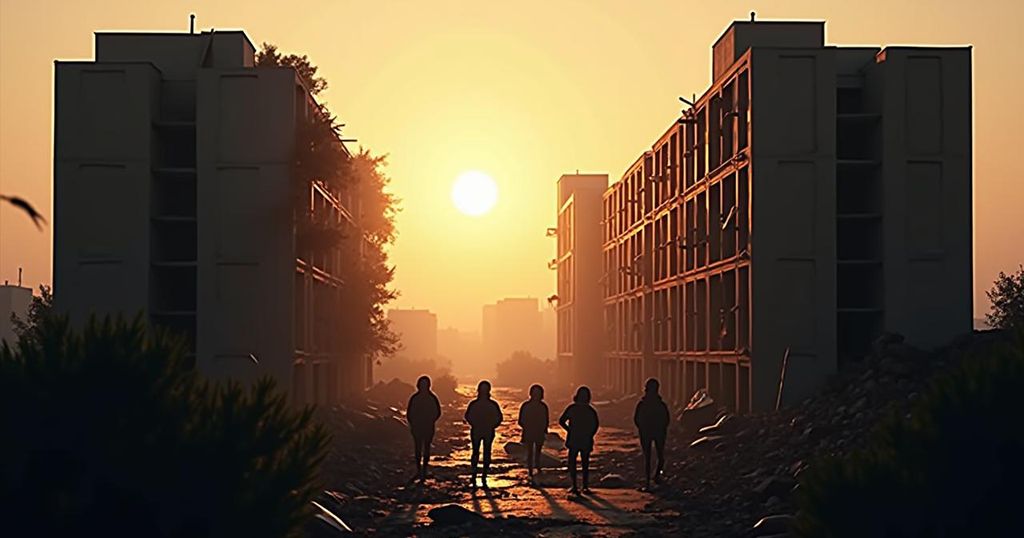On October 6, 2024, a 4.9 magnitude earthquake impacted the Awash Fentale district in Ethiopia, causing structural damage and ground fissures. The tremor, felt in Addis Abeba, raised concerns about ongoing seismic activity, prompting Samara University to conduct assessments and advise local residents on safety measures. The response highlights the significance of geological monitoring and community education in disaster preparedness.
On the evening of October 6, 2024, a 4.9 magnitude earthquake struck the Awash Fentale district in Ethiopia, resulting in significant structural damage to houses and the emergence of ground fissures. The earthquake occurred at approximately 8:10 PM and was felt in distant locations, including Addis Abeba, as reported by the Ethiopian News Agency (ENA). Samara University confirmed that the tremor had detrimental effects, leading to damage to buildings and cracking of the ground throughout the affected regions. In their social media statements, university officials noted an uptick in seismic activity in the Awash Fentale area over the preceding two weeks. The Geology Department of Samara University has since initiated field evaluations, focusing on Sabure Kebele, to assess the extent of the damage and enhance public understanding of safety protocols in light of ongoing geological concerns. During their assessments, geologists advised local inhabitants to refrain from traversing the mountainous zones surrounding Fentale and the vicinity of the Kesem Dam due to the increased potential for further seismic incidents. International geological organizations, including the U.S. Geological Survey, are actively monitoring these seismic events in the region and have been documenting the occurrences, including the recent earthquake. Residents of Addis Abeba reported feeling the impact of the tremor, prompting many to share their experiences on social media. Numerous videos and posts depicted individuals, particularly those residing in condominium buildings, evacuating their structures as a precautionary measure during the tremor. Samara University expressed its concern regarding the ongoing seismic disturbances, underscoring the anxiety generated by the damage to residential properties in the impacted area.
Ethiopia’s geographical location makes it susceptible to seismic activity. The Awash Fentale district has historically experienced earthquakes, prompting ongoing research and monitoring efforts by academic institutions and geological agencies. The recent earthquake’s relatively moderate magnitude has raised awareness of the region’s vulnerability to more severe seismic events, leading to increased public safety discussions and research initiatives aimed at understanding and mitigating the impacts of such occurrences. The involvement of Samara University highlights the critical role of educational institutions in addressing local geological threats and fostering community awareness about emergency preparedness. Their monitoring and outreach efforts are crucial in enhancing safety measures and ensuring residents are educated about appropriate responses to seismic activities.
In conclusion, the 4.9 magnitude earthquake that struck Awash Fentale and was felt in Addis Abeba on October 6, 2024, has resulted in structural damage and raised concerns among local communities. Samara University continues to play a pivotal role in assessing the aftermath of this seismic event and advising residents on safety practices. With ongoing monitoring from both national and international geological agencies, it is crucial to remain vigilant as the region experiences persistent seismic activity. The situation highlights the importance of emergency preparedness and community awareness in mitigating the impacts of future earthquakes.
Original Source: allafrica.com






